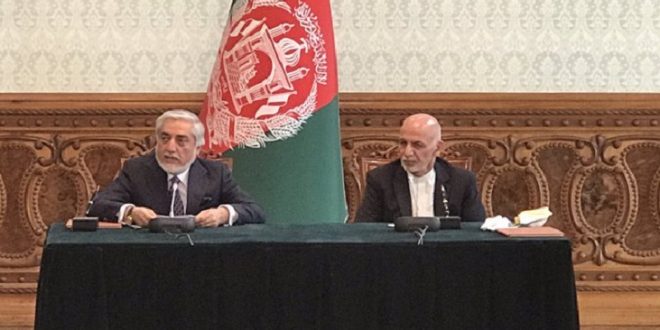Political calamity has gripped Afghanistan in the shadow of a fatal pandemic – a double whammy eating away at paltry sources of daily livelihoods of millions and eroding their belief in the government. In Afghanistan, prolonged political tensions and power tussle as a result of complicated election always been problematic and ended up with power-sharing agreement as recently between President Ghani and Dr. Abdullah. Moreover exacerbated by a rapid coronavirus outbreak and an intensely aggravated violence – has overshadowed the lives of common people. Fragile peace process, the ongoing war with bloody terroristic incidents is painful realty of our time. Over 100 civilians were killed and over 400 others received injures since the start of the holy month of Ramadan. Escalation of violence and sustained spread of the coronavirus has only exacerbated the problems. COVID-19 disease has led to more poverty, joblessness and phenomenal price hikes. Save the Children has said 7 million children in Afghanistan are at risk of starvation. In the political sphere, many contend that fallouts of the political wrangling – poverty and war – will be insurmountable. An obstinate leadership feud is believed to have assisted the galloping of corruption and dereliction of governance and management, leaving indelible imprints on public opinion and emboldening the radical Talibanism ideology. Poverty has dangerous consequences. All these calamities are eerily interwoven with the history. A dangerous aspect of the continuing cycle of poverty and public distrust and the growth of the Taliban tumor is unwittingly giving an upper hand to the belligerent Taliban in the prospective diplomatic negotiations expected until after 5,000 of their unscrupulous prisoners are released from Kabul’s captivity. The government is doing so to the mirage of getting reconciled with the Taliban, only to realize that the tempo of violence has not been redressed, but ratcheted up to the bewilderment and chagrin of millions of weary people. So, the question is that are we heading in the right path as a nation? There is any chance for a durable peace through reconciliation efforts with the Taliban. Last Tuesday was the deadly one as mothers and newborn babies were targeted in a hospital in Kabul and dozens others were targeted in a funeral ceremony in eastern Nangarhar province. Ironically, the Taliban rejected involvement, showcasing a harsh reality that deadly attacks will even continue after the Taliban reintegration into civil society. A political agreement or consensus to end all forms of violence is need of the hour.

 Afghanistan Times
Afghanistan Times



